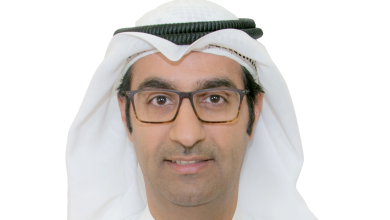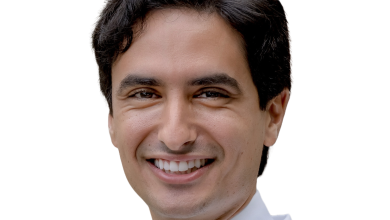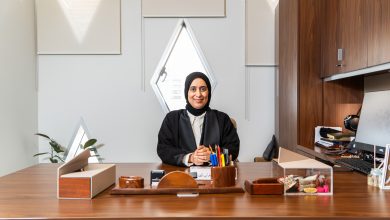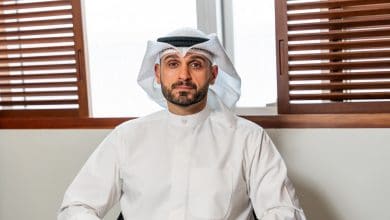Mohammad H. Jamal
Advancing Medical Science Through Research and Mentorship

Mohammad H. Jamal began his career in medical sciences as a teenager. Since then, for almost three decades, he has traveled the world, always searching for the best opportunities to advance the field and provide patients with life-changing results. On 2022, the Kuwait Foundation for the Advancement of Sciences (KFAS) recognized his tireless commitment by awarding him the Jaber Al-Ahmad Prize for Young Researchers in the field of medical and allied medical sciences.
Jamal studied and earned professional qualifications in the United Kingdom and the United States before returning to Kuwait in 2012, where he has since held various positions at Kuwait University and the Kuwait Institute of Medical Specialization (KIMS). “My research interests mostly span the areas of metabolism and obesity,” Jamal said. With these interests in mind, Jamal completed his bachelor’s in medicine and surgery at the University of Aberdeen in Scotland and then earned a master’s in education at the University of Cincinnati in the United States. He completed a Canadian Board of Surgery certification in transplantation, liver, and pancreas surgery and an American Board of Surgery certification in obesity surgery through Montreal, Canada-based McGill University.
Now, as an associate professor in the Department of Surgery at Kuwait University, Jamal maintains connections with colleagues in England, North America, and elsewhere, as he continues to pursue research opportunities that will shape the field. He has also published three books and dozens of scientific research papers in peer-reviewed journals.
His latest research focuses on non-alcoholic fatty liver disease (NAFLD), which is one of the leading causes of chronic liver disease worldwide and the fastest-growing indicator for liver transplantation in many countries. “Kuwait has probably one of the highest rates of this disease in the world,” said Jamal. Because many people develop the early stages of NAFLD without knowing it, the actual prevalence of the disease in Kuwait is likely even greater than what researchers have discovered.
Recently, Jamal and colleagues at King’s College London received grant funding for a collaborative project studying epigenetic changes associated with obesity that may lead to NAFLD. Their insights into the causes of the disease could lead to the development of new preventives or treatment options and make a real difference in the lives of many in Kuwait and around the world.
His previous research has also received support from KFAS, including recent grant funding for a project exploring the effects of bariatric surgery on specific immune cells. The results of this study were published in a top academic journal and have implications for further research on obesity and insulin resistance.
Alongside his research projects, Jamal said he is also committed to educating the public about the topics he studies. Particularly, he believes that dispelling the stigma surrounding body weight is an essential part of his work because it could encourage patients to seek support before significant health problems develop. “A lot of patients do not seek medical help because they think obesity is a personal problem, and there is a stigma surrounding it,” he said. “But it is very complex and associated with wrong preconceptions.”
The significant potential of his research and outreach to help patients and families is not lost on Jamal, who has seen diseases, including cancer, affect his own family. After his aunt was diagnosed with liver cancer, he felt compelled to become an expert on the liver and liver surgeries. “That certainly affected me in pursuing the path of surgery,” he said.
While Jamal said he is honored to have won the Jaber Al-Ahmad Prize for Young Researchers this year, he attributes his research breakthroughs, published papers, and accolades to good mentorship and collaborations throughout his career. “I do not believe it is individual work,” he said. “Any good work comes from a team, and I am very lucky to have great people on my team, including my research assistants, teaching assistants in the university, my students, and my residents who participate in the research.”
When Jamal was just starting out, he remembers being one of those students and how much the mentorship he received from his professors shaped his career path. “When I joined the surgery department as a teaching assistant, my professor encouraged me to pursue research because research can advance the field much more than the surgery itself.”
Even years after finishing his studies, Jamal remembers his own mentors by name: Professor Asfar and Professor Dashti. “They were a source of encouragement and momentum,” he said. Now, he hopes to provide the same sort of inspiration and guidance to the next generation of Kuwaiti scientists whom he works with at Kuwait University.
“Mentorship and coaching are important because it ensures the continuity of science and research,” he said. “To become a researcher, you need to have a good mentor at an early stage in your career, and I would love to be that for my students.”
Similarly, Jamal hopes that news of his winning the Jaber Al-Ahmad Prize for Young Researchers will inspire his team. “All of our efforts culminated in us winning this prize,” he said. “I think it will push us to work harder in pursuing more good quality research.”
Byline: Marianne Dhenin




